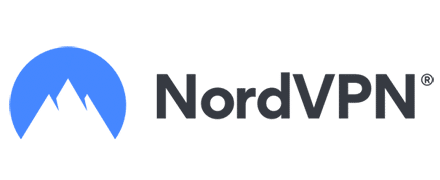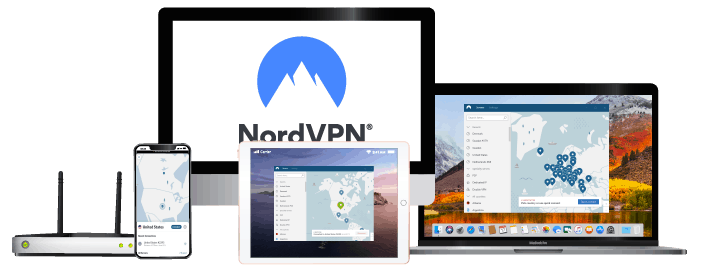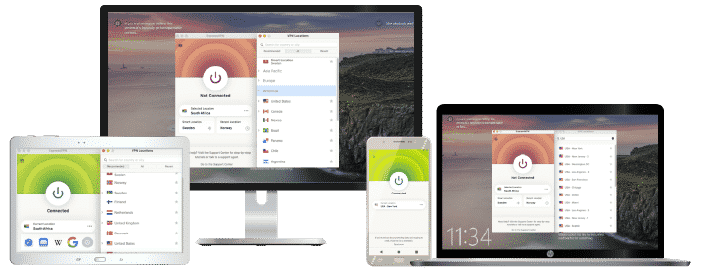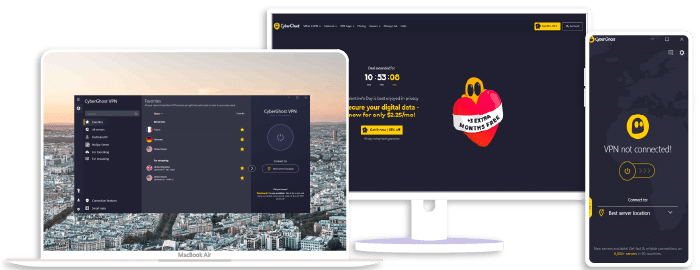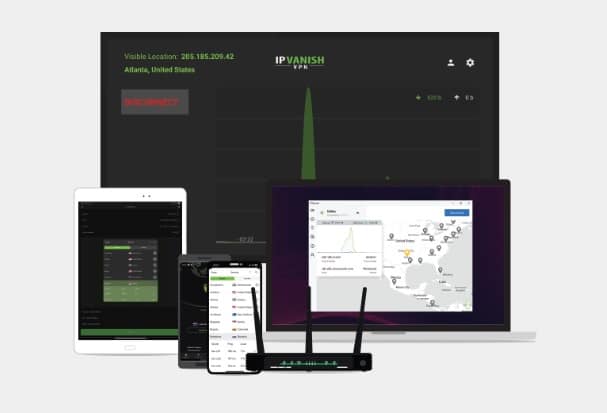How to Unblock Websites on School Chromebook with VPN
Finding yourself frustrated with blocked websites on your school Chromebook? Trust me, you’re not alone. Many students face this issue daily, often hindering their ability to access valuable resources for learning or even a much-needed break. But don’t worry! I’m here to show you how to effectively bypass these blocks with a Virtual Private Network, commonly known as a VPN.
A VPN is an indispensable tool, especially in an academic environment where internet freedom may be somewhat restricted. By creating a private network from a public internet connection, VPNs >mask your IP address< and make your online actions virtually untraceable. By using a VPN, you can unlock a world of content previously blocked on your school Chromebook.
You may wonder, isn’t bypassing school restrictions wrong? It’s important to remember that while we are seeking to provide educational value and promote the beneficial uses of VPNs, they should be used responsibly. After all, we’re equipping you with the power to unlock the web—how you use it is in your hands. So let’s dive in and explore how you can efficiently unblock websites on your school Chromebook using a VPN!
NordVPN
Overall score: 9.6
- Incredibly fast servers
- Great security features
- Verified no-logs policy
- Unblocks streaming platforms
30-Day Money-Back Guarantee!
ExpressVPN
Overall score: 9.8
- Super-fast servers
- AES 256-bit encryption
- Supports private protocol, Lightway
- Money-back guarantee
30-Day Money-Back Guarantee!
Surfshark
Overall score: 9.5
- Allows unlimited simultaneous connections
- Integrates Stealth mode
- Multihop feature available
- 3,000+ servers
30-Day Money-Back Guarantee!
CyberGhost
Overall score: 8.8
- 45-day money-back guarantee
- 7,000+ reliable servers
- Strict no-log policy
- Tough security features
30-Day Money-Back Guarantee!
IPVanish
Overall score: 9.4
- Speedy servers
- AES 256-bit encryption
- Offers a 7-day free trial
- Unblocks restricted platforms with ease
30-Day Money-Back Guarantee!
Understanding School Chromebook Restrictions
Let’s start by getting straight into what’s going on with school Chromebooks. Schools add restrictions to these devices as a protection measure. These restrictions aim to keep the academic environment focused and safeguard students from harmful and inappropriate online content. In simpler terms, you’ll find certain websites, apps, and online activities blocked on your school Chromebook.
It’s not that the school doesn’t want you to use the internet. On the contrary, they understand the significant role the internet plays in today’s learning environment. They just want to ensure that the web resources you have access to are safe and educational.
Let’s get more insight into these restrictions. There are certain categories of restrictions that you’ll commonly find. First, content and website filters. Schools use web filters to block specific websites and online content deemed inappropriate for students. Such restrictions could extend to social media sites, gaming platforms, and more.
Second, inappropriate language and search filters. Online safety for students extends beyond preventing access to harmful content. Ensuring their language and online behavior remain appropriate is an additional layer of protection the school deploys. Thus, attempts to search for or convey obscene language will be blocked.
An interesting fact to note is that restriction intensity could vary. Depending on your grade, the restrictions placed on your school Chromebook might be less rigid compared to another grade. For example, high school students might have access to some websites that are inaccessible to younger students.
In the effort of transparency, it’s important to mention that these restrictions aren’t always optimal. In their defense of security, schools might end up blocking websites that could be quite beneficial for your learning process, such as forums where students can help each other out, or sites that offer learning resources. This is where understanding how to unblock websites on a school Chromebook with VPN might prove beneficial.
Finally, the restrictions are not about controlling your surfing preferences. No, it’s about maintaining a safe online learning environment. It is about protecting minors from explicit online content. However, if there’s a genuine need to access blocked sites that can contribute positively to your learning, then you’ll need to explore workarounds like Virtual Private Networks (VPNs). Learning how to use a VPN effectively can indeed make a difference. And I’m here to guide you through that process.
The Role of VPNs in Unblocking Websites
Ever wonder how to bypass those pesky school filters on your Chromebook? I’m talking about those filters that prevent you from visiting websites you might need for coursework or personal research. Perhaps you’re thinking it’s a tough nut to crack. But guess what… it’s not as bothersome as it seems. That’s right, with the right tools — namely a Virtual Private Network (VPN) — you can unlock any restricted site on your school’s Chromebook.
Let’s delve into why a VPN is pivotal for unlocking these sites. You see, a VPN works by routing your internet connection through a server in a different location — anywhere in the world. So, when you’re using a VPN, your school’s network thinks you’re browsing from somewhere else, and volia! Your desired website is unblocked.
A VPN serves a twofold function. It not only gives you access to blocked websites, but also enhances your online security. By hiding your real IP address, it keeps your online activities anonymous, ensuring that you’re protected from online threats. We can’t ignore this crucial role of VPN, can we?
Indeed, based on a 2020 report, about 31% of internet users worldwide use VPNs for different purposes. Here’s a quick snapshot:
| Reason For Using VPN | Percentage of Users |
|---|---|
| Access blocked content | 51% |
| Keep anonymity while browsing | 44% |
| Secure public Wi-Fi | 37% |
| Hide IP address | 30% |
So, we see, a VPN isn’t just for the technically inclined; it’s a handy tool for anyone needing to keep their online activities secure and free from restrictions.
There’s one snag though. Not all VPNs are created equal. That’s why it’s essential to do your homework before picking one. Some offer superior privacy with no logging policy, while others may deliver faster browsing speed.
I’ll explore more about choosing the right VPN in the following sections. For now, remember: If you’re looking to unblock websites on a school Chromebook, a VPN is your golden ticket.
Step-by-Step Guide to Unblock Websites with VPN
Look, you’re surely not the first one to encounter a blocked website on a school Chromebook. I’ll teach you how to bypass this issue with a reputable VPN.
Before we dive in, it’s worth mentioning that using a VPN might be against your school’s policy. I’m here to provide information, but it’s also vital to respect the rules of your institution.
Getting started, you’ll need to install a VPN extension or application on your Chromebook. There are plenty of options out there, including NordVPN, ExpressVPN, and CyberGhost. Each of these has its pros and cons, and their pricing plans vary. Here’s a quick comparison table:
| VPN | Pros | Cons | Price Range |
|---|---|---|---|
| NordVPN | High security, large network | Average speed | $3.71 – $11.95 p/m |
| ExpressVPN | Fast speed, strong security | More expensive | $8.32 – $12.95 p/m |
| CyberGhost | User-friendly, good speed | Less secure | $2.25 – $12.99 p/m |
If you want the free ride for now, you could opt for Windscribe or TunnelBear, although they have data limits per month.
Once you’ve chosen your VPN:
- Start by downloading the VPN app onto your Chromebook directly from the VPN’s website or from Google’s Play Store.
- Open your chosen VPN app or extension, and create an account.
- Look for an option to connect to a VPN server – it’s typically labeled as “Connect” or “Start”.
- From the list of server locations, pick one that is outside of the region that blocks your desired site. For instance, if in the US, and you’re attempting to access a UK-only site, select a VPN server located in the UK.
- Finally, open your browser, and try accessing the so far blocked website.
And voila! You should now be able to access previously blocked websites on your school Chromebook. But always remember, respect your school’s policy and use this newfound knowledge responsibly.
Wrapping Up: Internet Freedom Within School Boundaries
And there you have it! I’ve walked you through the steps on how to unblock websites on a school Chromebook using VPN. It’s simple, fast, and doesn’t require any special technical skills. Just remember to respect your school’s IT policies and regulations.
Something that I think is important to emphasize is balance. A school’s network restrictions are often in place for a good reason, usually to keep students focused on education-related tasks and websites. However, I understand that at times there’s a need to unblock certain educational sites that might be accidentally caught in the wide net of internet restrictions. Hence, the importance of knowing how to tweak your school chromebook just a bit without causing any harm or breaking any laws.
Specifically, using VPN to unblock websites is an effective, nondestructive way to bypass these limitations:
- It allows you to access valuable online resources that were previously unavailable
- It offers a way to cloak your online actions, making your internet use anonymous
- It provides an increased level of security, protecting your data from unwelcome prying eyes
And remember, in case of any troubles or uncertainties while using a VPN, don’t be shy to ask for professional help or consult trustworthy online forums. I hope this guide has been helpful, and gives you the internet freedom you need within the boundaries of your school. Happy browsing!
